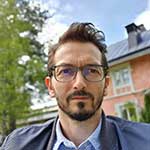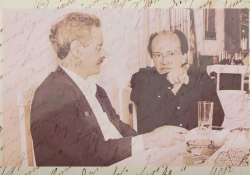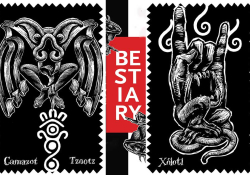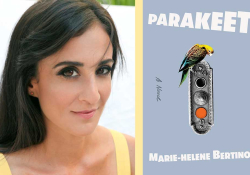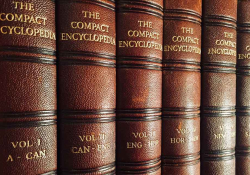Surprised by Handke
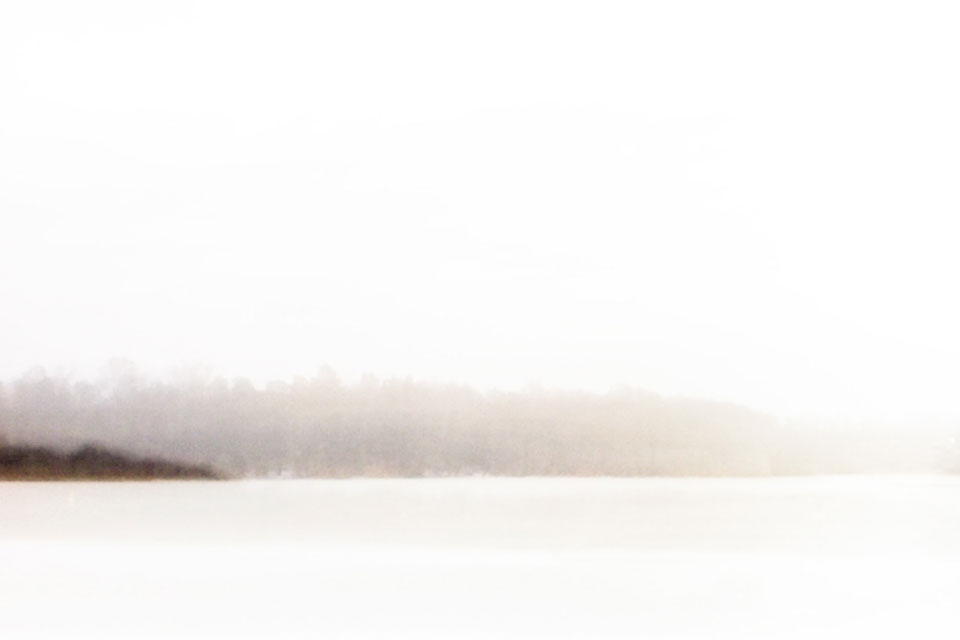
A Bosnian refugee of war now living, teaching, and writing in Stockholm considers the Swedish Academy’s selection for the 2019 Nobel Prize in Literature, Peter Handke, and the international backlash following the decision.
In 2011, when Tomas Tranströmer received the Nobel Prize in Literature, there were no earthquakes in our beautiful Scandinavia. Aside from the obligatory articles in Swedish newspapers and short news reportage, one did not register a sudden surge in reading nature poetry. No statues were raised in his honor. His work was not sold as THE work that captured the soul of the nation, nor was he made a national icon, though one would not mind, for a change, such a benevolent icon. There were no sudden and extensive discussions of his beautiful imagery or his political life or his private relationships.
Fast-forward eight years to this autumn. Everyone is speaking about the Nobel Prize, the literati and the illiterati, the young and the old, left-right-center. I do not recall ever posting an article about literature on my FB wall and getting as many hits and comments. Except, it really was not about literature. Or was it? It was about that original-sin/question: whether one can divorce literature from its author, from its history, from politics and economy? The question of pure literature, as Handke put it in the first interview. Same old questions and same old tired answers are flooding the airwaves, Wi-Fi waves, or whatever we tend to call them nowadays.
This year’s winner was a hard blow to me: a refugee from the Balkans to the land of Tranströmer’s, one of those who according to Handke killed themselves, raped themselves, ethnically cleansed themselves. This winner made me, and so many people, feel like losers. I always thought that the Nobel Prize was supposed to make everyone winners, by the very fact we are, through a combination of social and real capital, giving value to writers who have made a contribution to our development as one human race, and possibly also to nature itself, as with Tranströmer. Is this too much to ask? Maybe. Am I wrong? Maybe. That has to be left open if one is to keep out of the pitfalls of illiterate outrage. John L. Esposito said, “Too often we do not compare our ideal to somebody else’s ideal. . . . We compare our ideal to somebody else’s reality, when it’s convenient” (September 10, 2014, University of Kentucky). I agree with this when it comes to pitting ideologies against one another, pitting ethnicities and cultures against one another, which usually results in the hubris of national-ethnic-religious egos, that which the 2018 winner Olga Tokarczuk seems to have consistently fought. God knows there is plenty of that nationalistic hubris around nowadays. Yes, even in Tranströmer’s Sweden.
But in the case of the Nobel Prize, the ideals are the grading criteria like when we teachers grade students’ essays or evaluate their creative writing. In this furor, perhaps, we have forgotten what the criteria are and also to what criteria we are paying more attention. What is worth more and what less? For Anders Olsson, a member of the Academy, there are many new criteria now, including the question of diversity, but above all it is literary excellence they look for (Babel, STV). Is the ethical mandate of literature part and parcel of the Nobel Prize? If yes, then what sort of ethics does the award to Handke’s oeuvre (not early work) profess to the world? What is the Swedish Academy trying to teach us? How about consistency? We the outraged have in some media been seen as unforgiving. I’d be the first to go against our times’s all too quick tendencies to dismiss and judge for transgressions, but how about the consistency of transgressions and how about the consistent lack of empathy? This group of judges, who according to Olsson has not been affected by last year’s scandals, and whose very legitimacy Handke himself questioned, are, no doubt, sending a message, but is it the lesson we needed after thousands of years of world literary production? This imbalance of criteria will necessarily be a part of both the critiques and the defenses of the winner until everything is forgotten come Swedish winter.
This imbalance of criteria will necessarily be a part of both the critiques and the defenses of the winner until everything is forgotten come Swedish winter.
There’s hardly any doubt in the mind of so many critics, at least around here in Stockholm, that this is a tactical move, meant to distract us from last year’s controversy about the moral conduct of the Academy, in particular the issue of gender and all that goes with the territory. This year’s award, according to many, to genocide denial, history revisionism, and all that goes with that territory, makes us forget the last year’s gender trouble. This is just the tip of the iceberg of all the things one can criticize about this year’s choice (blatant Eurocentrism seems practically negligible, a child’s play, or, “mala maca,” as we say in Bosnian, the language Handke does not quite recognize as a language, but he knows what “jebote miš” means in Serbian).
There is probably no nation in history, or even from the times before nations, that has not produced sons (and maybe a few daughters) whose literature and political engagement helped transform people’s minds positively but also make atrocities look anything from pure good to necessary evil (no difference really because people suffer in any case). We complain that video games dumb down our kids and desensitize them from feeling empathy about the Other, but here we have yet another example of the literati with not just broken moral compasses but who also actively aided the discourse of historical conspiracies. Aleksandar Hemon famously complained about his professor Nikola Koljević, who went from teaching Shakespeare to warmongering and support of genocidal ideologies in the 1990s Balkans, ideologies of Milošević and Karadžić (incidentally a poet) (The Observer, April 14, 2013). To me there is no difference between representatives of various religions who, in outrageous perversions, supported slaughter and attempted to give it a spiritual dimension. In our time, when literature as a historical phenomenon has come to represent an alternative to religion in many secular circles (in particular academia), what does our new winner bring us?
We complain that video games dumb down our kids and desensitize them from feeling empathy about the Other, but here we have yet another example of the literati with not just broken moral compasses but who also actively aided the discourse of historical conspiracies.
This is not an attempt to censor or belittle the bulk of Handke’s work, for instance the much praised early work. This is not a gesture like we teachers nowadays see in students who more and more have a hard time telling the difference between the teacher and the literature taught, between narrator and character, between realism and satire, and who more often than not ascribe individual characters’ thoughts and actions to the authors themselves. It may very well be that Handke’s work prior to the 1990s possessed both literary virtuosity and fulfilled the ethical mandate of literature that is a part of the Nobel criteria, but then his infamous travel narrative Eine winterliche Reise zu den Flüssen Donau, Save, Morawa und Drina oder Gerechtigkeit für Serbien (1996), and a few other books that followed, are a part of the oeuvre that “with linguistic ingenuity has explored the periphery and the specificity of human experience.” As Miljenko Jergović, who otherwise supports the award to Handke, wrote on his website:
Bile su to riječi, bio je to stil velikog pisca, ali tekst koji je proizvodio bio je nepodnošljivi folklorni kič, imitaciju srpske patriotske proze koju je, možda, pisao kakav Mladićev narednik. I sve to u inat onima koji su . . . U inat kojima? Teška je to i duga priča.
Those were the words, that was the style of a great writer, but the text he produced was unbearable folkloric kitsch, an imitation of Serbian patriotic prose of some of Mladić’s commanders. And all that to spite those who . . . to spite who exactly? It’s a long, heavy story.
For many, Handke would not have even been considered had he been a supporter of the Nazi Party or of al Qaeda.
The Academy is aware of both shallow and deep criticism, and a rather long row of controversies that surround Handke’s life and work, but it is apparently “surprised” over the international backlash. For many, Handke would not have even been considered had he been a supporter of the Nazi Party or of al-Qaeda. This shows that islamophobia and genocidal racism against Balkan peoples is more acceptable in the West. The famous Serbian author Bora Ćosić, who according to many himself deserves the Nobel, wrote a gastkommentar in Neue Zürcher Zeitung (October 13, 2019):
Die angesehene Akademie der stolzen Schweden scheint mit dem Fall Handke endlich eine frühere Sache zu lösen, die von Hamsun. Dem gewaltigen Autor des 20. Jahrhunderts, der zweifellos mit einem der finstersten Regime der Geschichte verbunden war.
The prestigious Academy of Proud Sweden finally seems to solve an earlier case with the case of Handke, that of Hamsun. The mighty author of the twentieth century who was undoubtedly associated with one of the darkest regimes in history.
In a response to the overwhelming global criticism, from organizations such as the Mothers of Srebrenica to PEN, as well as writers and journalists all over the world, Mats Malm, the Academy’s secretary, says on the behalf of the Surprised Swedish Academy (Dagens Nyheter, October 12, 2019):
Allt utgår från principen om människors lika värde. Vi har också frågan om yttrandefrihet. Det finns gränser för yttrandefriheten. Men ingenting här bryter mot svensk lag eller internationell rätt.
Everything is grounded in the principle of human equality. We also have the issue of freedom of speech. But nothing here is against Swedish law or international law.
The jump from the universal law of human worth to the misuse of the references to the law and freedom of speech is stunning. The continuous argument in this interview—where Handke’s actions are labeled “misunderstandings” and are seen as authentic attempts to explore the depths of truth and justice—do not befit the crème de la crème of the world of literature. To me, this “surprise” is akin to the typical Swedish “surprised by snow” headlines that clutter the media every single winter. Although the entire country of Sweden has adopted “suprised by snow” as a national joke, the system is always, somehow, and for real caught with its pants down and a bit frostbitten. A bit numb.
Maybe the Swedish Academy should always have, as point one on their agendas, Salman Rushdie’s famous question: How does the newness enter the world? The answer for some might be: Change the members of the Academy.
Again, we cannot simply boil down the talk about literature to that most-misused phrase “political correctness” or continue using the same old trump cards from art and academic discourses whenever we face those same old conundrums. Should the Swedish Academy not show inventiveness and push us further in our development, if there is such a thing? How can we trust their judgments when they feed us the same-old same-old? They take us for fools and maybe we are fools. Is this move going to bring us closer to literature as such, closer to reading, and to close reading, to complexities of Warheit and Dasein? Maybe the Swedish Academy should always have, as point one on their agendas, Salman Rushdie’s famous question: How does the newness enter the world? The answer for some might be: Change the members of the Academy.
This year, I have received two pieces of tragic news related to the world of literature, which I love. The first was the death of one of the most deserving winners of the Nobel Prize, Toni Morrison, and the second was the choice of Handke. Toni, if I may allow myself to be on a first-name basis (because you’ve always felt like a friend), may you rest in peace. I know you would be the first to raise your powerful voice right now, both in defense of literature and defense of human values, and haunt the house of the Swedish Academy until they learned your, and our, historical lessons.
Stockholm
